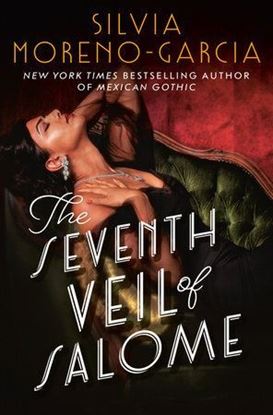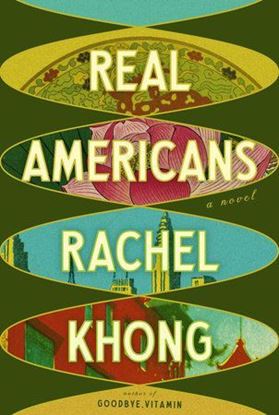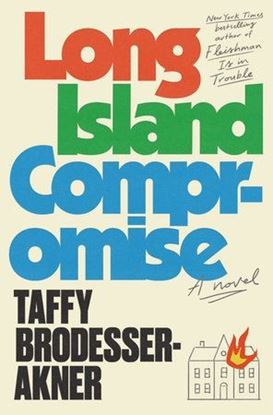

Y/N
It’s as if her life only began once Moon appeared in it. The desultory copywriting work, the boyfriend, and the want of anything not-Moon quickly fall away when she beholds the idol in concert, where Moon dances as if his movements are creating their own gravitational field; on livestreams, as fans from around the world comment in dozens of languages; even on skincare products endorsed by the wildly popular Korean boyband, of which Moon is the youngest, most luminous member. Seized by ineffable desire, our unnamed narrator begins writing Y/N fanfic—in which you, the reader, insert [Your/Name] and play out an intimate relationship with the unattainable star.
Surreal, hilarious, and shrewdly poignant, Y/N is a provocative literary debut about the universal longing for transcendence and the tragic struggle to assert one’s singular story amidst the amnesiac effects of globalization. Esther Yi’s prose unsettles the boundary between high and mass art, exploding our expectations of a novel about “identity” and offering in its place a sui generis picture of the loneliness that afflicts modern life.
995
746
THE SECOND COMING
When 13-year-old Jolie Aspern drops her phone onto the subway tracks in 2011, her estranged dad, Ethan, seems like the furthest thing from her mind. A convicted felon and recovering addict, Ethan has always struggled to see past himself. But then a call from his ex makes him fear their daughter's in deeper trouble than anyone realizes. Believing he's the only one who can save her, he decides to return to New York with a gift: the whole of his life, its hard-won triumphs and harrowing mistakes . . .
So begins the intimate epic of Jolie and Ethan: child and adult, apart and together, different yet the same. Their journey toward each other will face opposition from grandparents and siblings and friends. It will strain connections with roommates and benefactors and a probation officer desperate to help. It will push Jolie out past her depth with a mysterious admirer, and Ethan in over his head with his first love, Jolie's mom. But as father and daughter struggle to find their footing, new vistas beckon: from a surf break in mid-'90s Delaware to group therapy during the great recession, from an encampment at Occupy Wall Street to a HoJo on Maryland's Eastern Shore, from the heights of the Brooklyn Bridge to horizons seldom seen in fiction.
995
746
THE SEVENTH VEIL OF SALOME
1950s Hollywood: Every actress wants to play Salome, the star-making role in a big-budget movie about the legendary woman whose story has inspired artists since ancient times.
So when the film’s mercurial director casts Vera Larios, an unknown Mexican ingenue, in the lead role, she quickly becomes the talk of the town. Vera also becomes an object of envy for Nancy Hartley, a bit player whose career has stalled and who will do anything to win the fame she believes she richly deserves.
Two actresses, both determined to make it to the top in Golden Age Hollywood—a city overflowing with gossip, scandal, and intrigue—make for a sizzling combination.
But this is the tale of three women, for it is also the story of the princess Salome herself, consumed with desire for the fiery prophet who foretells the doom of her stepfather, Herod: a woman torn between the decree of duty and the yearning of her heart.
Before the curtain comes down, there will be tears and tragedy aplenty in this sexy Technicolor saga.
995
746
REAL AMERICANS
Real Americans begins on the precipice of Y2K in New York City, when twenty-two-year-old Lily Chen, an unpaid intern at a slick media company, meets Matthew. Matthew is everything Lily is not: easygoing and effortlessly attractive, a native East Coaster, and, most notably, heir to a vast pharmaceutical empire. Lily couldn't be more different: flat-broke, raised in Tampa, the only child of scientists who fled Mao’s Cultural Revolution. Despite all this, Lily and Matthew fall in love.
In 2021, fifteen-year-old Nick Chen has never felt like he belonged on the isolated Washington island where he lives with his single mother, Lily. He can't shake the sense she's hiding something. When Nick sets out to find his biological father, the journey threatens to raise more questions than it provides answers.
In immersive, moving prose, Rachel Khong weaves a profound tale of class and striving, race and visibility, and family and inheritance—a story of trust, forgiveness, and finally coming home.
Exuberant and explosive, Real Americans is a social novel par excellence that asks: Are we destined, or made? And if we are made, who gets to do the making? Can our genetic past be overcome?
995
746
LONG ISLAND COMPROMISE
“Were we gangsters? No. But did we know how to start a fire?”
In 1980, a wealthy businessman named Carl Fletcher is kidnapped from his driveway, brutalized, and held for ransom. He is returned to his wife and kids less than a week later, only slightly the worse, and the family moves on with their lives, resuming their prized places in the saga of the American dream, comforted in the realization that though their money may have been what endangered them, it is also what assured them their safety.
But now, nearly forty years later, it’s clear that perhaps nobody ever got over anything, after all. Carl has spent the ensuing years secretly seeking closure to the matter of his kidnapping, while his wife, Ruth, has spent her potential protecting her husband’s emotional health. Their three grown children aren’t doing much better: Nathan’s chronic fear won’t allow him to advance at his law firm; Beamer, a Hollywood screenwriter, will consume anything—substance, foodstuff, women—in order to numb his own perpetual terror; and Jenny has spent her life so bent on proving that she’s not a product of her family’s pathology that she has come to define it. As they hover at the delicate precipice of a different kind of survival, they learn that the family fortune has dwindled to just about nothing, and they must face desperate questions about how much their wealth has played a part in both their lives’ successes and failures.
995
746
KILL SWITCH. DEVIL'S NIGHT 3
Sending Damon to prison was the worst thing Winter could’ve done. It didn’t matter that he did the crime or that she wished he was dead. Winter thought he’d cool off in jail and be anything but the horror he was, or that at the very least she’d have time to disappear before he got out.
But she was wrong. Three years came and went too fast, and prison only gave him time to plan. And while Winter anticipated his vengeance, she didn’t expect this. He doesn’t want to make her hurt. He wants to make everything hurt.
Damon knows he needs to get rid of Winter’s father, giving her, her sister, and her mother nowhere to run. The Ashby women are desperate for a knight in shining armor. But that’s not what’s coming.
It’s time Damon took control of his future. It’s time he showed them all that he will never stop being the nightmare they think he is.
Damon won’t have to break into her home to do it.
As the new man of the house, he has all the keys.
995
746













